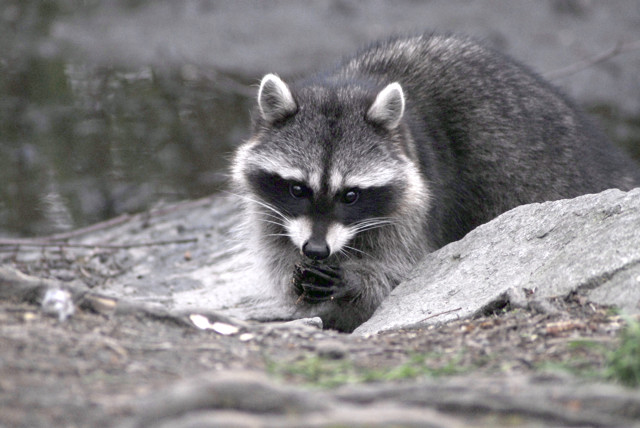
Yesterday in Morbidity and Mortality Weekly Report, investigators from the US Centers for Disease Control and Prevention (CDC) and local health officials recounted 2024 raccoon roundworm infections in two children in Los Angeles County, California, that left one with severe cognitive, motor, and visual deficits due to initial misdiagnosis.
After possibly ingesting raccoon feces and/or contaminated soil, the two unrelated boys presented with signs and symptoms such as encephalopathy, roundworm larva in the eye, peripheral and cerebrospinal fluid eosinophilia (high levels of a kind of white blood cell), behavioral changes, and unsteady gait.
The patients, who had brain abnormalities on imaging, were found to be infected with Baylisascaris procyonis, a roundworm parasite often found in raccoons that can cause baylisascariasis, a rare and potentially serious human disease.
"Baylisascaris procyonis (raccoon roundworm) is an intestinal parasite that causes widespread, typically asymptomatic infection in raccoons (Procyon lotor) in the United States, where up to 80% of raccoons in the Northeast, Midwest, and West Coast regions are affected," the researchers wrote.
Severe persistent neurologic complications
The first patient, age 14 years, had autism and a history of pica (consumption of nonedible items). The second patient, age 15 months, had previously been healthy.
Health care providers should suspect B. procyonis infection in patients with eosinophilic meningoencephalitis, especially young children or persons with developmental disabilities or pica and consider empiric treatment with albendazole.
Both patients received the antiparasitic drug albendazole and corticosteroids. The first patient recovered neurologically, but the second patient developed severe persistent neurologic complications after a substantial delay in receiving an accurate diagnosis and treatment.
Epidemiologic investigation identified raccoon feces that had fallen from a rooftop latrine (communal raccoon defecation site) as the possible source of exposure for the teen, but a source wasn't identified for the younger child.
"Health care providers should suspect B. procyonis infection in patients with eosinophilic meningoencephalitis, especially young children or persons with developmental disabilities or pica and consider empiric treatment with albendazole," the authors concluded. "In addition, the public should be aware of exposure prevention strategies, including preventing raccoon activity around properties, avoiding exposure to raccoon feces, and safely removing raccoon latrines."










